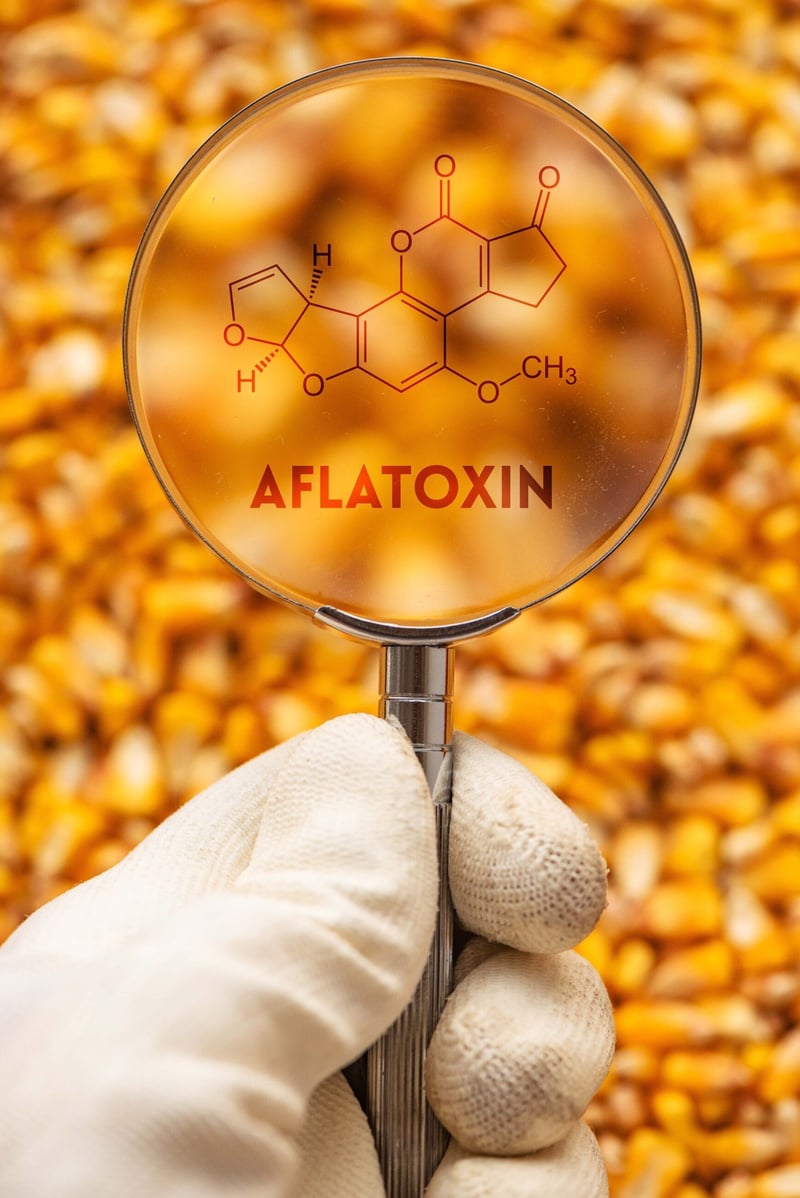Consumer Rights and Human Rights - why food safety regulators are key
Written by: Jozi Save to Instapaper
The past two months have shown how the humblest of household food items can lead us to question the safety of what we add as part of a daily, healthy diet.
Aflatoxin, the compound found in popular food items, has come under the spotlight, but has provided the public a chance to unpack the critical role food testing plays in upholding consumer rights – a topical issue this World Consumer Rights Month.
Aflatoxins
World Health Organisation describes aflatoxins as a type of mycotoxin, which are naturally occurring toxic compounds produced by certain types of moulds (fungi).
In this group of mycotoxins, aflatoxins are amongst the most poisonous and are produced by certain moulds (Aspergillus flavus and Aspergillus parasiticus) which grow in soil, decaying vegetation, hay, and grains. Crops that are frequently affected by it include cereals (corn, sorghum, wheat and rice), oilseeds (soybean, peanut, sunflower and cotton seeds), spices (chili peppers, black pepper, coriander, turmeric and ginger) and tree nuts (pistachio, almond, walnut, coconut and Brazil nut).
South African retailers, in internal testing, recorded higher than acceptable levels of aflatoxin in a popular food product.
The risk of consuming products with higher than acceptable levels of aflatoxin may lead to complications such as nausea, vomiting, and abdominal pain.
A national Consumer Commission intervention
Subsequent to the reports of aflatoxin levels, the South African National Consumer Commission (NCC) directed all manufacturers to investigate aflatoxin levels in their products, in accordance with Regulation 2(a) of Regulation 1145 of the Foodstuff, Cosmetics, and Disinfectants Act.
This action underscores the importance of Hazard Analysis Critical Control Point (HACCP) certifications in ensuring a thorough approach to food safety from production to consumption.
The NCC has further requested suppliers to submit their Hazard Analysis Critical Control Point Certificates (HACCP) - a management system that analyses and controls biological, chemical, and physical hazards from a “farm to fork” cycle.
The outcome of their intervention is yet to be made public.
The role of food testing
Food safety testing via accredited processes such as the HACCP and Regulation 1145 of the Foodstuff, Cosmetics, and Disinfectants Act goes to great lengths to ensure foods are safe to consume.
Leading food safety inspection, testing and certification company, AssureCloud, provides food safety courses that empowers those working with food to comply with regulations for quality and safety. Relevant courses include HACCP awareness and implementation, Regulation 638, Basic Food Safety for Food Handlers, and ISO 22000 training.
Consumer Rights Month
It’s a fortunate coincidence that World Consumer Rights Month falls in the same month that South Africans observe national Human Rights Day.
The right to food, and food that’s safe to eat, is critical in upholding our human rights. The testing of food samples is an important key in ensuring safe food reaches the plates of millions across the country and globe.
The food industry, and consumers at large, now await the outcome of the National Consumer Commission’s intervention, an important step that brings together food safety testing and consumer rights.
Get new press articles by email
174 Press Release Articles
Jozi Donjeany-Meth heads up the PR division of Logico Creative Solutions, a full service marketing and communication agency based in Durban.
Latest from
- Show a Little Love to Your Tyres This Valentine’s Day
- R200,000 Up for Grabs in Toughees ‘Tough Like Us’ Back-to-School Competition
- Dunlop Tyres and Isuzu Motors South Africa Partner to Drive Local Enterprise Development in Gqeberha
- Learn the “ABCs” of Tyre Care this Back-to-School Season
- Do these tyre checks on your Joburg to Durban December drive
- From Loskop to the Nation - How a Rural KZN Village Powers South Africa’s Toughest School Shoes
- Step Into Summer with Tomy Takkies
- Fit for Bakkies - Dunlop Sure Mileage Warranty Gets a Major Upgrade
- Dunlop Tyres SA Welcomes Marcia Noxolo Veronica Mayaba as New Commercial Director
- Get That Italian Feeling with Bata Comfit
- A full tyre replacement at no cost, plus additional cover – Dunlop Sure levels up
- Dunlop Named Official Tyre Partner of “Gran Turismo™ 7”
- Malvern Children’s Home Faces R1 Million Utility Crisis – Urgent Call for Community Support
- Your Tyres Need a Spring Clean Too – Especially with Rainy Days Ahead
- Before you hit the road - essential tyre info for your journey
The Pulse Latest Articles
- Opinion Piece: Activating Leadership To Engage The Passive Workforce (February 11, 2026)
- Tchagra Trail Wilderness Consulting Launches A New Safari Experience In Photography And Tracking (February 9, 2026)
- Magic: The Gathering Releases Lorwyn Eclipsed (February 6, 2026)
- Back To Work, Back To Balance: Rethinking The 3pm Slump (February 5, 2026)
- Back-to-school Lunchboxes That Just Make Sense (February 5, 2026)
